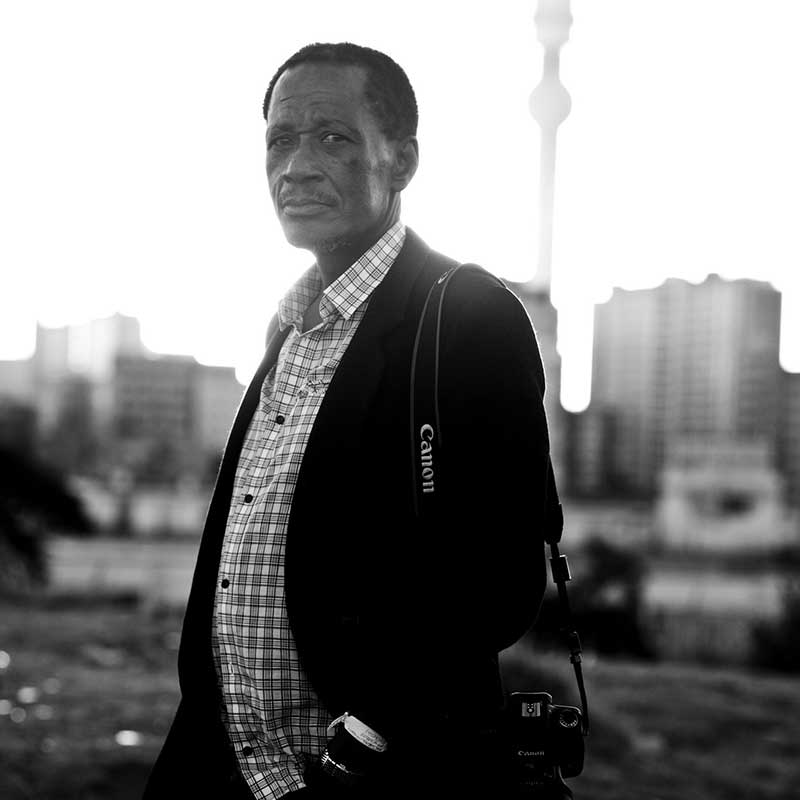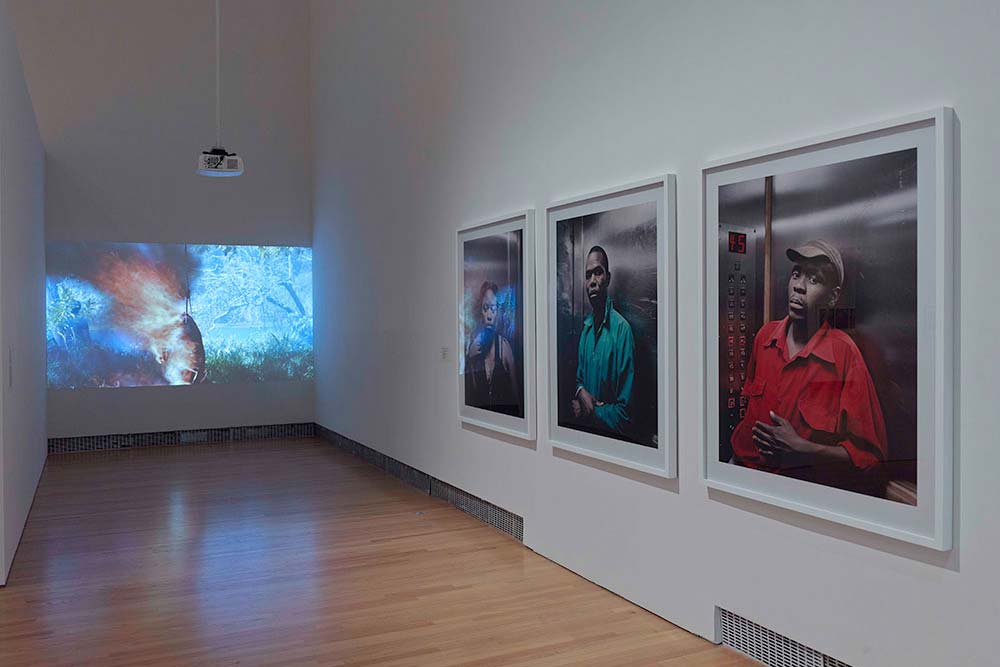Santu Mofokeng was born in 1956 in Johannesburg, where he currently lives and works. In his photography, he focuses on capturing aspects that dominate the daily life of black people in South Africa, such as the experience of commuting, or the pervasiveness of spirituality, as in his Train Church (1986) and Chasing Shadows (1996–2006) series. Mofokeng began as a street photographer in Soweto, but in the early 1980s he embarked on a career in documentary photography. He was a member of the Afrapix Collective (1985–91), which became well known for documenting the battle against apartheid. Engaging subjects as visually diverse as black middle-class identities and the signifying potential of landscape, he upsets the comfort zones of racial and cultural memory, always foregrounding the ideological role of representation. His explorations of landscape invested with spiritual significance form part of a wider inquiry into space and belonging, and the political meaning of landscape. He has long been engaged with the poetic and symbolic potential of black-and-white photography, rarely using color.
Mofokeng has been the recipient of numerous awards: In 1991 he won the Ernest Cole Scholarship to study at the International Center of Photography in New York, and in 1992, he won the first Mother Jones Award for Africa. In 1998 he was the recipient of the Künstlerhaus Worpswede Fellowship and three years later the DAAD Fellowship, both in Germany. In 2009 he was nominated as a Prince Claus Fund Laureate for Visual Arts. He has participated in exhibitions around the world, including the Venice Biennale (2013 and 2007), the 8th Berlin Biennale for Contemporary Art (2014), the Museo Nacional Centro de Arte Reina Sofía, Madrid (2013), the International Center of Photography, New York (2013), Haus der Kunst, Munich (2013), the Walther Collection, Ulm, Germany (2013 and 2011), Tate Modern, London (2012), the Victoria and Albert Museum, London (2011), the Museum of Fine Arts, Richmond, Virginia (2010), Iziko South African National Gallery, Cape Town (2007), and Documenta 11, Kassel (2002), among many others. His first international retrospective opened in 2011 at Jeu de Paume, Paris, and subsequently traveled to Kunsthalle Bern, Switzerland, and the Wits Art Museum, Johannesburg.



